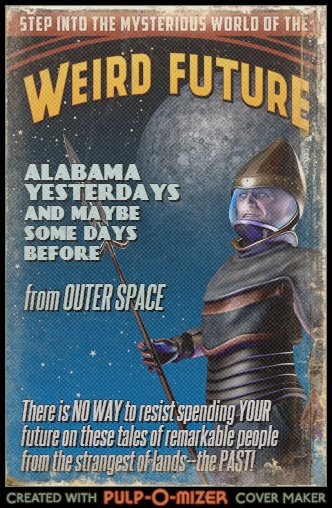Oscar Micheaux was born on a farm in Illinois in 1884, the fifth of thirteen children in the family. By the time of his death in 1951 he had written seven novels, and between 1919 and 1948 he also wrote, directed and produced 44 silent and sound films. He created the first black-owned film company and is considered the most important black filmmaker in America in the first half of the 20th century.
Only three of his 24 silent films are known to survive, the one discussed here released in 1920, Within Our Gates [1920] and Body and Soul [1925]. Symbol was restored a few years ago from the only known surviving print, but some of it is still missing. The film is available on a five-disc set, Pioneers of African-American Cinema. I saw it recently on Turner Classic Movies. I've also written a blog post on one of Micheaux's sound films, Birthright [1939], which was based on Alabama author T.S. Stribling's novel The Store.
Symbol opens as Eve Mason leaves her home in Selma, Alabama, and heads to the Pacific Northwest. She has inherited property from her grandfather and thus has become a part of the Great Migration of blacks out of the south into other areas of the country that lasted from about 1916 until 1970. Most moved to urban areas, but Eve moves to property outside a small place, Oristown.
Eve soon meets her neighbor, a young prospector named Hugh Van Allen. He helps her get settled and comes to her rescue when she needs him. The film is a mix of themes: a "white-skinned" black [Eve] trying to fit somewhere, land thieves, a black man who hates all members of his race, and the good man [Hugh] who becomes wealthy, and the couple in love [Eve and Hugh] finally together in the end. There's even a nighttime raid by a Northwest version of the KKK, the Knights of the Black Cross. A more detailed summary of the story can be found here.
This film is worth watching for several reasons, not the least of which is the all-percussion musical score composed for the restored version by legendary jazz drummer Max Roach. In Symbol as in his other films Micheaux tries to tell an interesting story with a variety of black characters who are not stereotypes. In the two I have seen, he succeeded. This film, released November 29, 1920, was filmed in Fort Lee, New Jersey, the center of the American commercial film industry until everything moved west.
Some more comments are below.
Newspaper advertisement for the film
Source: Wikipedia
Neighbor Hugh Van Allen helps Eve get settled in the tiny cabin on her grandfather's land.
Just above the bed in the cabin is a portrait of Booker T. Washington
Eve Mason and Hugh Van Allen declare their love for each other by the end of the film.



















